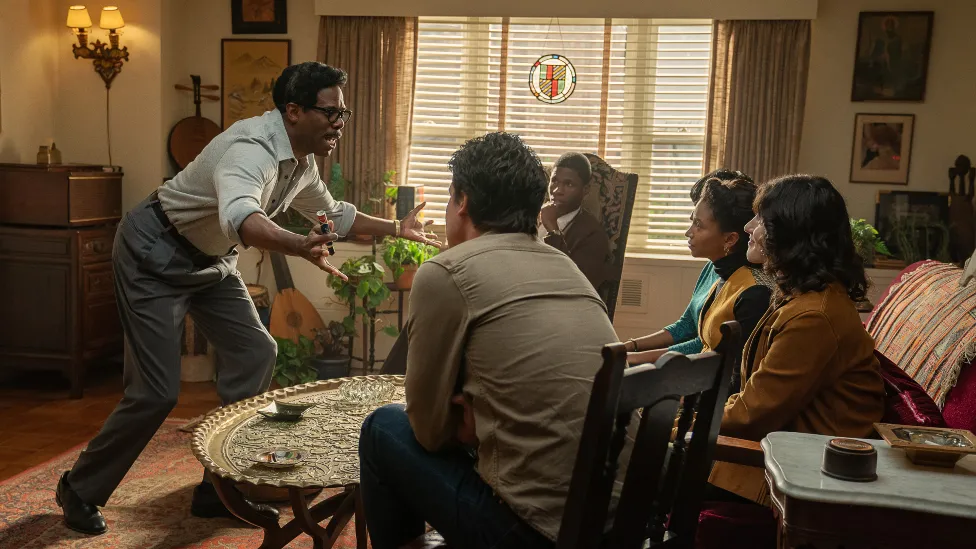When Netflix released a film about Bayard Rustin last weekend, the vast majority of subscribers probably looked at the title blankly and wondered: Who?
But that is precisely the reason the film has been made. Rustin is the true story of a man who played an instrumental part in history, but whose contribution has often been overlooked.
The real-life Rustin was a key figure in the civil rights movement who organised the March on Washington in 1963, where Martin Luther King delivered his I Have A Dream speech. While the speech and King's name have gone down in history, Rustin has not.
The reason, in large part, is because he was an openly and unapologetically gay man - a controversial stance at the time which led to him being beaten and arrested. The new film about his life has been produced by Barack and Michelle Obama (more on them in a minute), and its star, Colman Domingo, is likely to be in contention for best actor when the Oscar nominations are announced in January.
Unusually, the press launch is taking place after the film's release, instead of before. That's because Hollywood has only just returned to work following the recent strikes, so there is a backlog of promotional work for actors to do for their films. "Making and creating it is wonderful, but now that we're out here it's really nice, because I feel like the films need amplification," Domingo (left on pic) says as he reflects on the strike.
"I love that part of it and I'm really glad we're able to do it now." The actor is in London to promote not just one Oscar-tipped film, but two.
The night before our interview, we see him at the UK premiere of The Color Purple, the new screen adaptation of the novel which he stars in opposite singer Fantasia Barrino. "You were there? And you're not terrified of me?" he jokes - a reference to the nasty and frightening character (Albert) he plays in his other film.
In Rustin, however, the titular character is likeable, driven and charismatic. The actor agrees that the fact many viewers won't know Rustin's story underlines the reasons for telling it.
"Absolutely, I love that it's just called Rustin," he says. "It raises a question: 'Who is that?' And now that it gets seen in 238 countries around the world is extraordinary, because he has been marginalised in the history books because he was openly gay.
"But he was the architect of the March on Washington, he was a key organiser and strategist, such a sizeable figure not only in our culture but in the world, who had such profound impact. "And part of the greatest flaw is the fact that he's been erased from history, so now we get to bring him out of the shadows and put him front and centre in his own story."
Despite some reservations from critics about the film itself, there is widespread agreement that Domingo's central performance is outstanding.
"He grabs you with his expressive physicality and then pulls you closer with the urgency, yearning and luminous sincerity that openly plays across his face," wrote Manohla Dargis of the New York Times.
"It's such a lucid, persuasive, outwardly effortless performance that you may not even notice he's carrying this movie almost by himself." Directed by George C Wolf, the movie also stars Chris Rock and CCH Pounder, as well as awards favourites Da'Vine Joy Randolph and Jeffrey Wright (both are in the Oscars conversation this year, but for different films).












